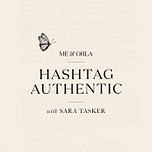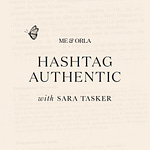Things we talked about:
The difference between writing as a journalist and writing a book (it’s just so long!)
But: you only get to publish your first book once! Accept the nerves, and appreciate the moment
The ever-present contention and push-back received when one writes about race
Natalie’s very wise words that reaction is the point of writing - and those reactions don’t have to be positive every time
The value of the interviews in her book, and how she found and chose the right people to talk to
Some of the stories and themes that came out of the interviews that surprised her
The unique experiences that people of mixed race have when they walk through the world, and the impact this has on identity, parenting, privilege, and the experience of racism
Parenting mixed race children (avoiding “colour-blindness” and those fetishised hashtags on social media)
How white parents can open dialogues that empower their mixed race children to talk about racism
The value of social media in creating connections, sharing ideas, and giving voice to minorities who are not always heard on mainstream platforms
But on the flip side, the deeply disturbing fetishisation of mixed race people - particularly mixed babies - and “blackfishing” trends (changing your appearance through make-up and hair to appear as though you have black heritage)
And Natalie’s rallying call to allies: “We need you to still care. We need that energy you had in the summer.”
Where to find Natalie online:
Natalie's book, Mixed/Other
Natalie is @nmozz on Twitter
And also @nmozz on Instagram
You'll find her writing on metro.co.uk, in the lifestyle section
And here's the Guardian article I mentioned, "Why celebrating mixed race beauty has its problematic side"
Where to find Sara:
The Insta Retreat - My tell-all, best selling course for Instagram creatives and business owners
Sara’s website: meandorla.co.uk
Sara on Instagram: @me_and_orla












